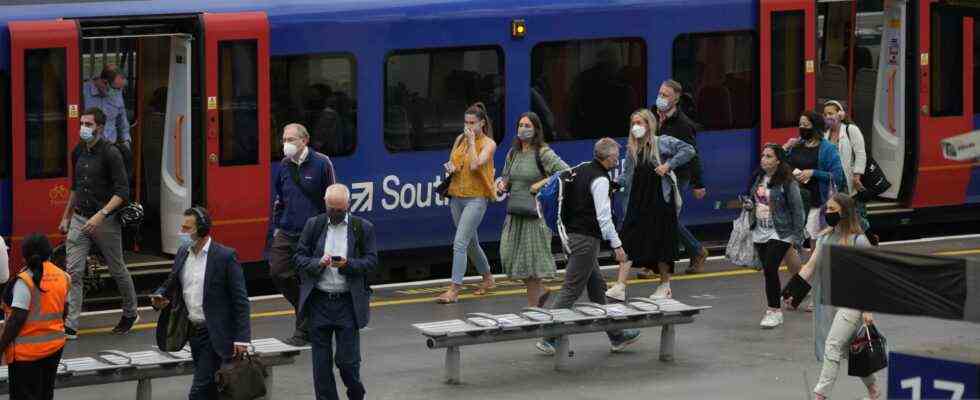Status: 07/30/2021 5:06 p.m.
The number of new infections in England has decreased, although the government has lifted most of the corona restrictions. Experts see several reasons for this – and predict another increase.
“We’re in the third wave,” said Jonathan Van-Tam, Deputy Chief Medical Officer of the BBC’s British government. But he very much hopes the worst is over. The daily infection numbers, which have been rising again for two days, but had previously fallen significantly, are currently providing hope.
In mid-July, the Public Health England (PHE) registered over 60,000 infections in one day. And fears have emerged in the political debate that the UK is making big strides towards the 100,000 daily infection mark. Mainly because Prime Minister Boris Johnson announced on July 19 that the last restrictions should be lifted. It was mainly about meetings with numerous people, concerts and night club visits, which are now possible again. But in the days that followed, the number of infections fell. On July 25, PHE reported 21,574 infections. 31,117 cases were reported yesterday.
Johnson rows back at openings
Experts such as medicine professor Paul Hunter explain that the decline is due to several factors: Because of the good weather, many people meet outside and not in closed rooms, the European Football Championship as the driver of many infections is now far behind and numerous people in the United Kingdom are vaccinated. 88.4 percent of adults in the UK have had a first vaccination and 71.4 percent a second, PHE reported.
At the beginning of the week, Hunter predicted a slight increase, which was now due to the openings on July 19. Johnson has already rowed back again. From September onwards, people who go to a nightclub, for example, should prove that they both have vaccinations. Many see this as a leverage to get young people in particular to get vaccinated.
However, the latest figures from the statistical office “Office for National Statistics” (ONS) show a further upward trend. ONS tests people whether they experience symptoms or not. In the week up to July 24, the proportion of infected people within the population continued to rise, as the authority announced. In England, for example, 1.57 percent of the population. Duncan Cook Assistant Director of the Covid-19 Infection Report said, “These data show that the number of infections is increasing, but there is evidence that the increase is slowing.”
Thousands have to be quarantined
The July 19 easing is hardly discussed, even though many Britons consider this move to be wrong. This is shown by a recent poll for the magazine “Politico”. 46 percent of Britons say the latest restrictions were lifted too soon. 33 percent found the repeal correct, twelve percent said it was too late.
Even if the number of infected people is relatively low, the number of those who are asked by the warning app to go into quarantine is increasing. Data was released yesterday that showed that nearly 700,000 warnings had been sent to users. Trade associations and companies complain that staff are in quarantine. Supermarkets had to suspend deliveries, shelves remained empty, and trains in London were canceled.
There are now exceptions for particularly important industries such as the food trade and health services. Johnson announced that as of August 16, double-vaccinated people will no longer need to be quarantined if they have received a warning. Opposition leader Keir Starmer of the Labor Party called for this date to be moved forward.
The number of infections in the UK is falling
Christoph Prössl, ARD London, July 30, 2021 4:13 p.m.

